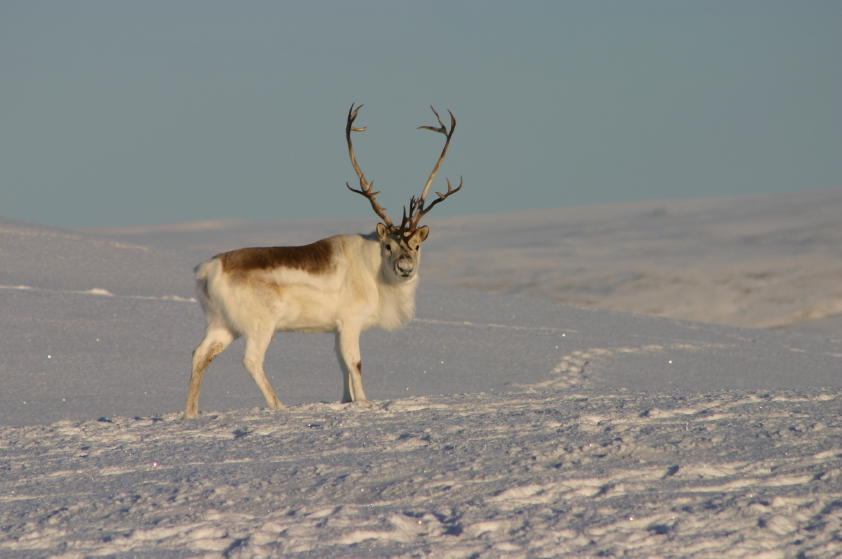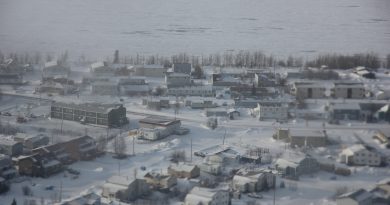Canadian caribou herd rebounds but future uncertain

Canada’s smallest caribou finally got some good news last week.
After seeing its population decline by almost 80 per cent, the Peary Caribou herds in the High Canadian Arctic have seen some modest rebound in last the few years.
The recovery was enough for the Committee on the Status of Endangered Wildlife in Canada (COSEWIC), an international advisory body composed of about 50 scientists, to recommend the animals be listed as Threatened instead of Endangered, said Justina C. Ray, president and senior scientist at Wildlife Conservation Society Canada.
Role of ice storms
Peary Caribou lives in the northwestern part of the Canadian Arctic and is endemic to Canada, which means it doesn’t occur anywhere else, Ray said.
In the mid-1990s there was a series of significant ice storms that hit several parts of the range and caused some significant population declines, said Ray who also co-chairs the terrestrial mammals subcommittee of COSEWIC.
The ice simply prevented the caribous from getting to their food.
The population of Peary Caribou dropped from an estimated 30,000 to just about 5,400 animals. Presently the population of Peary Caribou is estimated at about 14,000 animals, said Ray.
COSEWIC reassesses the status of each animal on its list every 10 years, she said.
Population rebound
The rebound in the population has been helped by the fact that the area hasn’t experienced such large and widespread ice storms in recent years. Local communities in Nunavut and Northwest Territories have also introduced voluntary bans on hunting the animals or have severely limited the hunt, said Ray.
And while the unusual ice storms that nearly killed off Peary Caribou where probably brought by climate change, the warming of the Arctic also had a silver lining, Ray said.
“In some places it’s possible climate change is helping a little bit with this species because in the far North there are areas that are greener for a longer period of time,” Ray said. “That might help it nutritionally.”
However, it’s still unclear how this will play out in the long term if temperatures continue to rise, Ray said.
Peary Caribou also depend on ice to move between islands in the western and northern Arctic, Ray said.
Related stories from around the North:
Canada: Nunavut allows limited caribou harvest after Baffin Island moratorium, Eye on the Arctic
Finland: Reindeer glitter to improve road safety in Finland, Yle News
Norway: Blog – Reindeer migration (by boat!) in Arctic Norway (VIDEO), Eye on the Arctic
Sweden: Bear hunt quota worries reindeer herders in Sweden’s Arctic, Radio Sweden
United States: Wildfires could threaten Arctic caribou herd’s winter habitat: study, Alaska Dispatch



